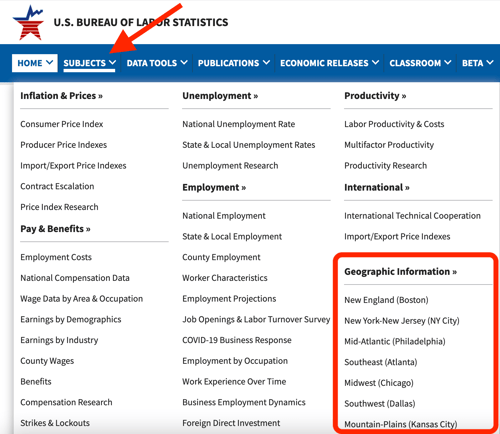In recent years, the financial services industry has undergone massive and near-constant change. First, the COVID-19 pandemic altered our spending habits completely. In response, businesses that had previously generated comfortable levels of in-person traffic to their stores found themselves racing to adopt digital transaction methods.
Then, once it was revealed that our pandemic spending habits weren’t disappearing overnight, financial services companies embraced the unlimited reach of fintech. Established financial organizations quickly jumped on the digital transformation train to provide their loyal customers with a modern experience. Meanwhile, seemingly every few minutes a new finserv app would pop up in the market, promising to provide their younger, tech-savvy audience with an unparalleled user experience.
Now — a few years closer to a post-pandemic world — the battle between established financial institutions and their fresh-faced fintech rivals continues to rage on. As a result, the financial services industry has only grown increasingly more competitive.
For example, to compete with new online-only banking services like Chime or N26, established banking institutions have launched their own virtual banking services — a combined effort that has all but reshaped the entire banking landscape, with 61% of consumers saying that they anticipate complete banking digitization by 2024.
But that’s not all — as the finserv industry has grown, the regulatory attention it receives has also increased, bringing with it a tightening of expectations around the way third party relationships are managed to limit cyber risk and the possibility of financial crimes.
Additionally, as sustainability and ESG standards remain top of mind for finserv company leaders, there is more pressure than ever before for both new and established companies to achieve net-zero emissions.
To put it simply — the pressure is on for financial services and according to Monica O’Reilly, the US Financial Services Leader for Deloitte, the industry is primed to rise to the challenge.
“The financial services industry is really at a pivotal point in its evolution,” said Monica. “We see that there is an opportunity for the industry to really embrace this perspective of not just being there for a business imperative, but also the opportunity to lead the way to a more just, equitable, and sustainable future for everyone.”
To create well-rounded strategies in the face of rising competition, many financial service providers have developed competitive intelligence processes that are helping them stay ahead of the pack.
Let’s take a closer look at how finserv companies can use competitive intelligence to differentiate themselves from the competition.
How competitive is the financial services industry?
Financial services is not a brand new industry (if we want to get technical, the first electronic fund transfer happened over a century ago in 1918). However, as the financial services industry continues to accelerate its adoption of digital technology on all sides, the barrier to entry has been all but eliminated.
Essentially, it has never been easier to enter a market than it is to join the exploding financial services industry. All you need to do is create an app, solve one of the many pain points in the financial services ecosystem using open-source software, and build your brand.
As a result:
- There are over 530,000 private establishments in the financial services and insurance sector.
- As of 2021, there were nearly 11,000 fintech startups in the Americas alone.
- The global financial services market was estimated to be worth over $22.5 trillion in 2021.
As far as playing fields go, it doesn’t get much more crowded than that. So, what does it take for a financial service provider to cut through all the noise and connect with their target audience?
Enter: competitive intelligence.
Competitive Intelligence Empowers FinServ Companies to Stand Out in a Crowded Market
Competitive intelligence allows companies to track, analyze, and activate information related to their competitive landscape. Ultimately, the goal of implementing a competitive intelligence process is to empower your entire organization to make hyper-informed, strategic decisions.
Whether you’re a banking institution with a household name or a bright and shiny early-stage fintech startup, you’re competing in a landscape full of fierce competitors all vying for the same audience. Competitive intelligence enables your sales and marketing teams to differentiate your company from the competition, to better connect with that coveted target audience.
For example, sustainability is all the rage in financial services (more on that later), spearheaded by a new generation of climate fintech startups. If you were the first of your direct competitors to commit to producing net-zero emission, that would be a massive differentiator in the eyes of your consumer base and give you a leading edge in your market.
By tracking and analyzing your competitors to confirm that you are indeed the first to commit to net-zero emissions, you are arming your teams with seriously valuable intel. Your sales team can reiterate the importance of sustainability on their calls and your marketing team can infuse your branding with green messaging to capitalize on this differentiator — and just like that you’ve leveraged competitive intelligence to gain an advantage in the crowded financial services market.
For a comprehensive look at how your organization can benefit from CI, here’s Competitive Intelligence: A Data-Backed Overview.
5 Ways Financial Services Companies Use Competitive Intelligence
For as long as there has been competitive intelligence, financial services companies have been using it to gain an advantage. But instead of leafing through product pamphlets and manually scrolling over-stuffed websites to track your competitors movements, the advancement of CI software now allows companies to gather competitive intelligence from a centralized platform.
Once gathered, it’s up to you to decide how to leverage your intel. Here are the top 5 ways that financial services companies use competitive intelligence.
1. Identify key product differentiators.
As we know, the financial services industry is expansive. Naturally, such a wide berth comes with an abundance of players. Everyone wants in on the finserv action, from legacy credit card issuers and banking institutions to all of the emerging app-based challengers in between.
As a result, what you have is a competitive landscape where the smallest differentiator is capable of carrying the most weight — whether that be a productized benefit like a bank offering corporate cards or a personal finance app like Venmo doubling as a social media platform.
Thanks to that aforementioned CI software, differentiators don’t stay in the conversation long before becoming industry standards. Watching competitor product updates and how they are received provides valuable insights into whether a differentiator posed by a competitor is worth spending your time and attention on or if it isn’t worth the investment in the long run.
For insights into how one of the most established financial services names in the game differentiates themselves from their relentless challengers, check out How Mastercard Uses Crayon to Empower Every Corner of their Organization.
2. Fuel marketing strategies & messaging.
While differentiators can be leveraged across your entire organization, one of the biggest use cases of CI for financial services is infusing your marketing strategy with insights you collect, for two main reasons:
- Industry-wide automation has increased the pace of fintech standards, burning through differentiators at a clip — the longer it takes for you to meet the new standard, the less likely you are to reap the benefits of being a first adapter.
- With the rare exception of fintech unicorns, the majority of financial services providers aren’t reinventing the wheel — once again leaving the state of the competition up to slight differentiators.
Because the goal of modern financial services is to take traditional finance that is often seen as hard to intuit and find ways to wrap it up in a user-friendly bow, win/loss often comes down to the packaging.
Competitive intelligence allows you to generate up to date insights into your competitors messaging and positioning, so marketing teams can be quick to adjust their market positioning based on differentiators.
For example, marketing teams at financial services companies that leverage CI collect up-to-date intel on how their competitors are messaging their differentiators. Armed with this information, those marketing teams can adjust their strategies and campaigns accordingly — even going so far as to adjust their own messaging based on what they’ve observed in the larger market.
3. Incorporate sustainability initiatives.
As mentioned above, sustainability is more than just a buzzword when it comes to the financial services industry. Due to an increased investment in social impact and environmental factors on a global scale, a microscope has been trained on the ESG initiatives of all fintech companies — with 54% of Gen-Z and millennials even going as far as saying that they would consider switching their primary bank based on ESG factors.
To have a fighting chance against the competition, fInancial institutions need to incorporate sustainability into every part of their operations, starting with initiatives like energy reduction, going paperless, and ESG investing.
Faced with an expanded market, consumers are empowered with more control than ever before. To appeal to an audience that prioritizes sustainability above all else, financial services organizations can use CI to gather intel on their competitors’ newest green initiatives and ensure they’re always up to date with the latest sustainable industry standard.
For example, 2021 was a record year for ESG funding, generating over $120 billion in sustainable investments (up from $51 billion in 2020). As a company in the financial services industry, if all of your competitors are publicly prioritizing ESG investing and you are not — that is a bad look for your company and climate-conscious consumers may rethink their relationship with you in favor of a competitor who is vocal about their dedication to sustainability.
4. Tailor recruiting efforts.
Those who are familiar with competitive intelligence know that it's primarily used to empower companies to craft informed strategies that successfully turn prospects into customers, but the magic of CI is that it can be implemented across your organization in many different ways — including in your people ops and HR departments.
As financial service providers continue to rake in funding, they are posting job openings left and right. And yet, recruitment has never been more challenging for the financial services industry as companies continue to duke it out for the same talent, with only 48% of financial services employees agreeing that their company delivers on employee satisfaction.
According to John Boochever, head of the Financial Services practice at Eagle Hill Consulting, the competitive nature of the fintech industry at large infuses the talent search with a heightened degree of competition.
“Financial services companies face serious competitive challenges at a time when employees are feeling burnt out and resigning from their jobs at historic levels,” said Boochever. “Failure to prioritize the employee experience will result in even higher rates of churn and ultimately harm customers.”
With competition at an all-time high, recruiting (and retaining!) top talent comes down to your ability to differentiate your employee experience from the rest. By leveraging competitive intelligence, you can stay up to date on your competitor's latest job postings and recruitment tools, and use that intel to shape your own recruiting strategy.
5. Abide by financial services regulation laws.
Financial services is the only industry that exists to fund other industries — as a result, it is highly regulated on a global, federal, and state level. Pair the natural abundance of regulations with the rapid digitization of processes, and what you get is a financial services industry that finds itself continuously adapting to new standards while new competitors and market opportunities are entering the fray each day.
So, if every financial services company is required to abide by the same regulations and laws, where does competitive intelligence come into play?
While all financial services regulation laws are written with the same purpose — to manage and mitigate cyber risk — there are a few different ways that financial services companies can abide by new regulations in practice, such as:
- Implementing new regulations internally
- Acquiring a company that already abides by the new regulation
- Outsourcing the implementation of the new regulation to a third-party provider
How a particular company goes about managing new regulations can signal their intent to enter the market as a solution for that particular regulation or problem.
For example, back in 2016 when they were on the lookout for a better way to enable secure online payments, Visa acquired CardinalCommerce to help abide by identity management regulations. Such a move signified to their competitors that Visa was taking expanding into digital commerce seriously, and that if they weren’t yet — it was time to start.
Of course, not every financial services company has pockets deep enough to make such an acquisition. But with competitive intelligence, you don’t have to break the bank in order to compete. Instead, CI empowers you to identify new ways of competing by giving you a peek behind your competitors’ curtain, ensuring you stay in the know of how the competition is abiding by each new regulation.
With Crayon, Financial Services Companies Can Compete Like They Mean It
During the COVID-19 pandemic, the financial services industry was fundamental in making banking more inclusive and secure for everyone, and now — as we continue moving toward a post-pandemic world — what were once viewed as differentiators for many financial services providers have become the standard. For those financial services companies unable or unwilling to keep up with the pace of the industry, it will be increasingly difficult to stand out from the pack.
And for those fintech companies who do want to compete like they mean it, it’s up to you to implement a sustainable competitive intelligence program at your company.
To begin leveraging competitive intelligence to gain a strategic advantage in the financial services industry, schedule a live demo with Crayon.
.jpg)
Related Blog Posts
Popular Posts
-
 How to Create a Competitive Matrix (Step-by-Step Guide With Examples + Free Templates)
How to Create a Competitive Matrix (Step-by-Step Guide With Examples + Free Templates)
-
 Sales Battlecards 101: How to Help Your Sellers Leave the Competition In the Dust
Sales Battlecards 101: How to Help Your Sellers Leave the Competition In the Dust
-
 The 8 Free Market Research Tools and Resources You Need to Know
The 8 Free Market Research Tools and Resources You Need to Know
-
 6 Competitive Advantage Examples From the Real World
6 Competitive Advantage Examples From the Real World
-
 How to Measure Product Launch Success: 12 KPIs You Should Be Tracking
How to Measure Product Launch Success: 12 KPIs You Should Be Tracking



.png?width=500&name=Sales%20Enablement-What%20is%20SE_%20(2).png)

